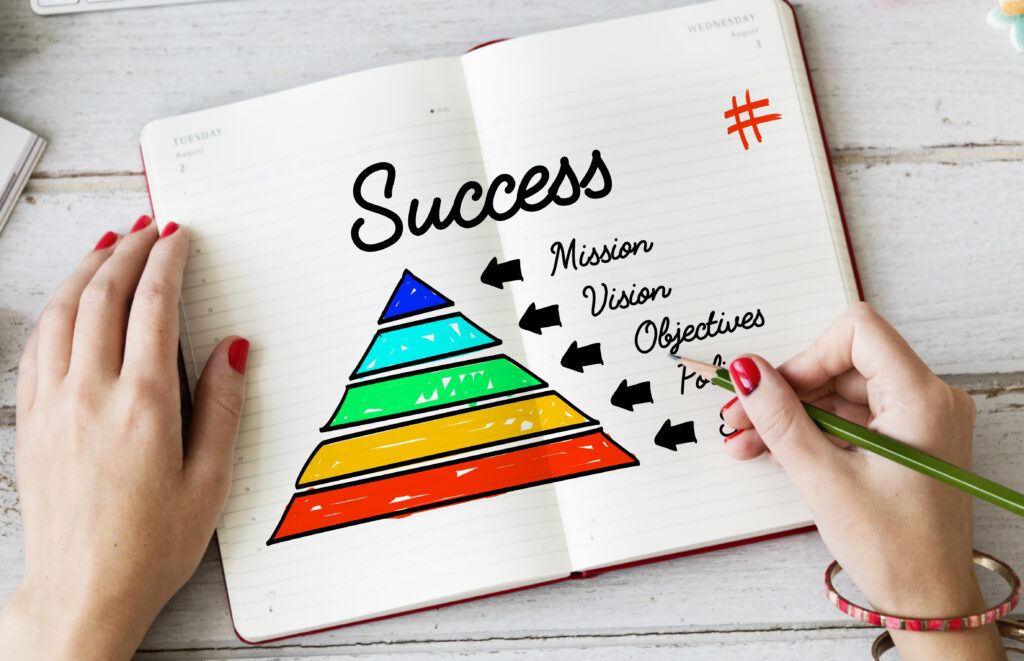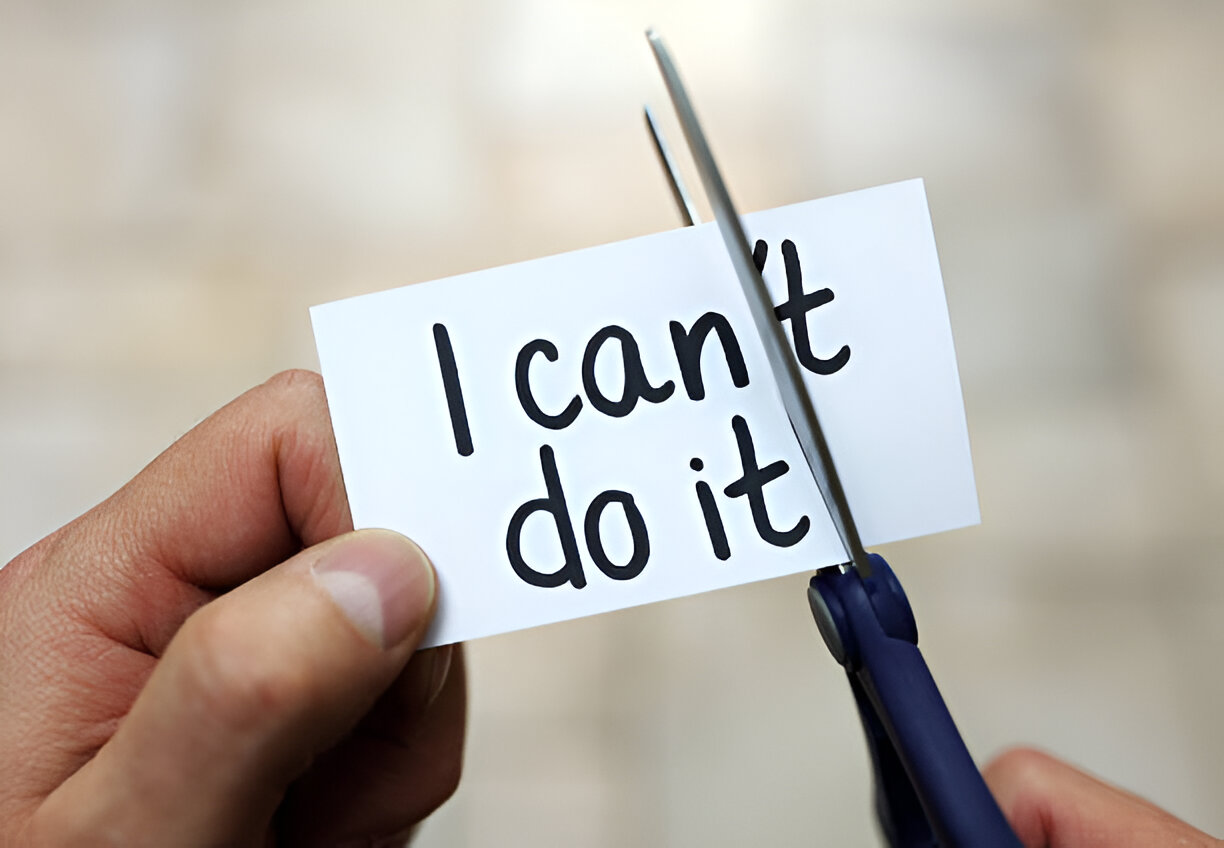Self-limiting beliefs are the invisible barriers that hold you back from achieving your full potential in your personal and professional lives. They are the negative thoughts and assumptions about ourselves, our abilities, and the world around us.
These beliefs, often formed in childhood or through past experiences, can sabotage our success, stifle our creativity, and prevent us from taking risks. They whisper doubts in our ears: “I’m not good enough,” “I’ll never succeed,” “It’s too late for me.”
But what if you could silence those whispers and rewrite your inner narrative? Not just quick fixes or magic wands but with consistent effort, self-compassion, and a commitment to personal growth.
Awareness – Identifying Your Limiting Beliefs:
The first step in overcoming self-limiting beliefs is becoming aware of them. This requires honest self-reflection and a willingness to examine your thoughts and behaviors. Many of these beliefs operate subconsciously, influencing your decisions and actions without you even realizing it.
Activities for Days 1-30:
- Journaling: Dedicate 15-20 minutes each day to journaling. Focus on your thoughts, feelings, and behaviors, particularly when you feel challenged, insecure, or stuck. Look for recurring patterns and negative self-talk. Try these:
- What are my biggest fears?
- What excuses do I make for not pursuing my goals?
- What negative things do I tell myself about my abilities?
- When do I feel most insecure or inadequate?
- What am I afraid others will think of me?
- Mindfulness Meditation: Practice mindfulness meditation for 10-15 minutes each day. Meditation helps you become more aware of your thoughts and emotions without judgment. It creates space between you and your thoughts, allowing you to observe them rather than being controlled by them.
- Identify Triggers: Pay attention to the situations, people, or events that trigger negative self-talk or feelings of inadequacy. What are the common themes?
- List Your Limiting Beliefs: As you become aware of your limiting beliefs, write them down. Be specific. For example, instead of “I’m not good enough,” write “I believe I’m not good enough to start my own business.”
- Categorize Your Beliefs: Group your limiting beliefs into categories, e.g., beliefs about your abilities, beliefs about your worthiness, and beliefs about the world. This exercise helps you see the broader patterns.
The goal of this first month is to bring your limiting beliefs into conscious awareness. You can’t change what you’re not aware of. This is a process of self-discovery, so be patient and compassionate with yourself.
Challenge – Questioning the Validity of Your Beliefs:
Once you’ve identified your limiting beliefs, it’s time to challenge their validity. Most limiting beliefs are not based on facts; they are assumptions, interpretations, or generalizations you’ve internalized over time.
Activities for Days 31-60:
- Evidence Gathering: For each limiting belief, ask yourself:
- What evidence do I have to support this belief?
- What evidence do I have to contradict this belief?
- Is this belief based on facts or feelings?
- Is this belief serving me, or is it holding me back?
- What would my life be like if I didn’t believe this?
- What would someone who loves and supports me say?
- Look for Exceptions: Are there times when this belief hasn’t been faithful? Any instances where you’ve succeeded despite this belief?
- Reframe Negative Thoughts: When you think of a limiting thought, consciously reframe it into a more positive and empowering statement. For example, instead of “I’ll never be able to do this,” reframe it as “This is challenging, but I’m capable of learning and growing.”
- Challenge the “Shoulds”: Many limiting beliefs are based on “shoulds” – unrealistic expectations imposed by yourself or others. Question these “shoulds.” Are they truly necessary? Are they serving you?
- Seek External Perspectives: Talk to trusted friends, family members, mentors, or a therapist. They can offer objective perspectives and help you see your beliefs differently.
This stage is about dismantling the foundation of your limiting beliefs by questioning their validity and recognizing that they are not absolute truths.

Replacement – Creating Empowering Beliefs:
Once you’ve challenged your limiting beliefs, it’s time to replace them with empowering ones. This is not just about positive thinking; it’s about consciously choosing beliefs that support your goals and values.
Activities for Days 61-90:
- Craft Affirmations: Create positive affirmations that directly counter your limiting beliefs. For example, if your limiting belief is “I’m not good enough,” your affirmation might be “I am worthy of love and success.” Repeat these affirmations daily, both silently and aloud.
- Visualize Success: Spend time each day visualizing yourself achieving your goals and embodying your new, empowering beliefs. Imagine how you will feel, what you will do, and who you will be.
- Surround Yourself with Positivity: Seek out positive influences – books, podcasts, videos, and people who inspire and uplift you. Limit your exposure to negativity.
- Practice Self-Compassion: Treat yourself with kindness and understanding, especially when you make mistakes or face setbacks. Remember that personal growth is a journey, not a destination.
- Celebrate Small Wins: Acknowledge and celebrate your progress, no matter how small. This reinforces your new beliefs and builds momentum.
- Act “As If”: Start acting as if you already believe your new empowering beliefs. This might involve taking small steps outside your comfort zone, challenging yourself to try new things, or simply behaving in a way that aligns with your desired self-image.
This stage is about actively cultivating a new mindset that supports your growth and empowers you to achieve your full potential.
Integrating New Beliefs into Your Daily Life:
Overcoming self-limiting beliefs is not a one-time event; it’s an ongoing integration process. The new, empowering beliefs you’ve cultivated must be reinforced and integrated into your daily life. This requires consistent practice and a commitment to self-awareness.
Key strategies for integration:
- Continue Journaling: Use your journal to track your progress, reflect on your experiences, and identify any remaining limiting beliefs that surface.
- Regular Mindfulness Practice: Continue practicing mindfulness meditation to stay present and aware of your thoughts and emotions.
- Seek Support: Stay connected with your support network – friends, family, mentors, or a therapist. They can provide encouragement, accountability, and perspective.
- Embrace Challenges: View challenges as opportunities to practice new beliefs and strengthen resilience.
- Be Patient and Persistent. Changing deeply ingrained beliefs takes time and effort. Don’t get discouraged if you occasionally slip back into old patterns. Just gently redirect yourself back to your new, empowering beliefs.
- Continuous Learning: Keep expanding your knowledge and skills. This builds confidence and reinforces your belief in your ability to grow and change.
- Stay Accountable: Work with a friend or a group of friends to help each other stay accountable.
This stage is about making your new beliefs a permanent part of your mindset and behavior. It’s about living your life in alignment with your values and aspirations.

Actionable Steps to Start Taking Today:
- List Your Limiting Belief: Take 5 minutes right now and list one limiting belief, its impact on you, and how you can change it.
- Challenge Your Beliefs: Take the belief you listed and start challenging it. Find incidents when this was not true.
- Visualize New Beliefs: Take 5 minutes and visualize the new you with empowering beliefs.
- Affirmation: Practice affirmation that counters your limiting belief.
- Take Action: Start acting upon those affirmations.
Concluding Thoughts:
Overcoming self-limiting beliefs is a powerful and transformative process that can unlock your full potential in all areas of your life. This 90-day blueprint provides a structured approach to identifying, challenging, and replacing those beliefs with empowering ones.
Remember, this is a journey, not a destination. It requires consistent effort, self-compassion, and a willingness to step outside your comfort zone. But the rewards – increased confidence, tremendous success, and a more fulfilling life – are worth the effort. By committing to this process, you can break free from the constraints of your mind and create the life you truly desire. You are capable of more than you think. Start believing it.
Ready to take the first step towards a more empowered you? Schedule a discovery call today to explore how we can help you overcome your self-limiting beliefs and achieve your goals.










